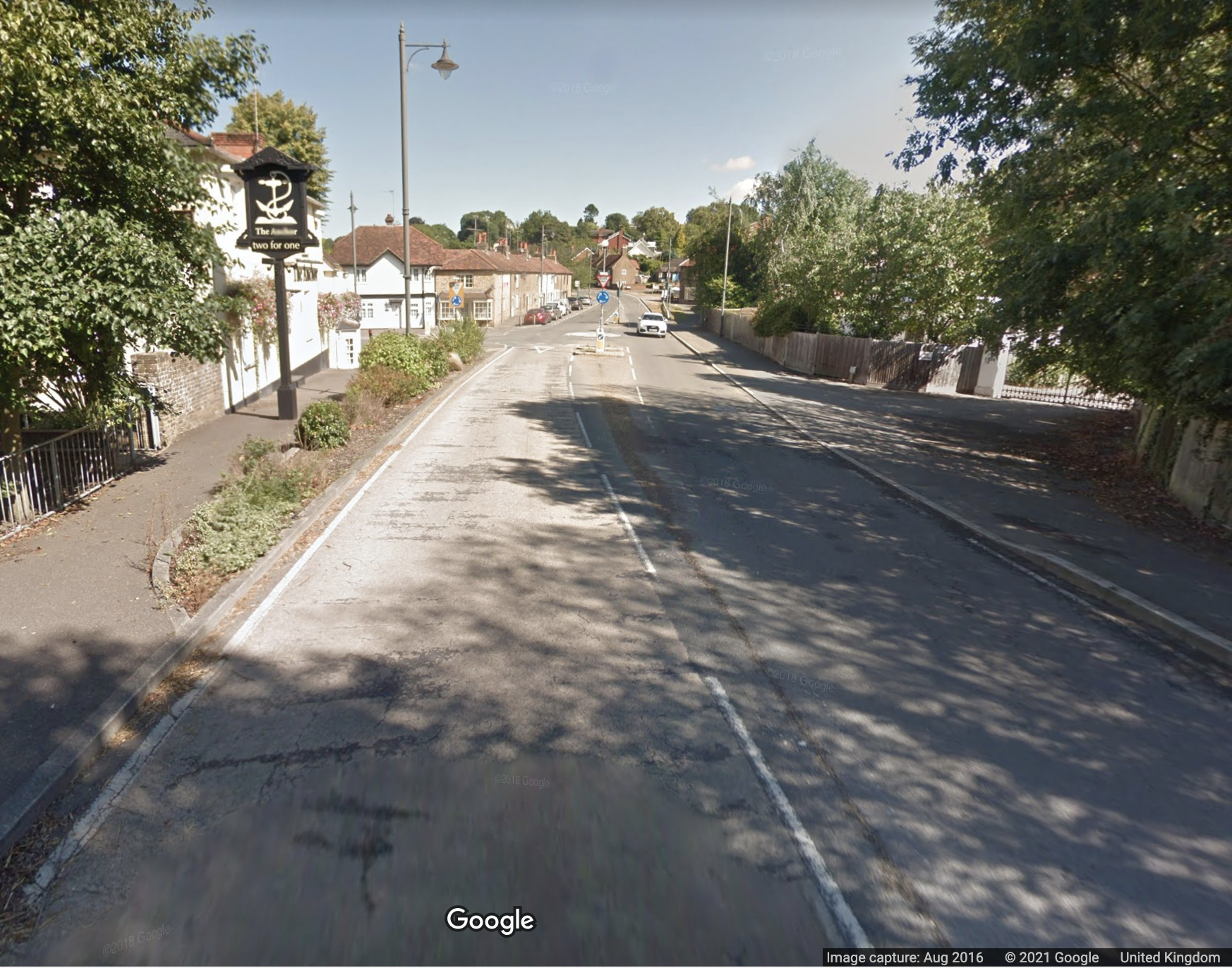We’ve always had road pricing. Why are we abolishing it?
Wadesmill in Hertfordshire: site of the country’s first ever turnpike in 1663
What connects drinking water, food, housing and fuel for heating and cooking? Answer: they are all absolutely essential for survival, yet we (as society) are happy for them to be chargeable according to the amount you use.
Indeed, as a society, we’re happy for almost everything to be chargeable according to the amount you use. Like most societies globally, we’ve found that payment is by far the most efficient way of allocating resources. In order to avoid grotesque inequalities, we then apply a tax and benefit system to ensure that everyone has at least some cash with which to pay for all this stuff.
There are exceptions
19th-century moralists championed the idea that books could be an alternative to drink, and got the 1850 Public Libraries Act passed. Libraries have been free ever since. The 1942 Beveridge Report described the “five giants” that society must slay once the war was over. These were ignorance (to be slayed by free education), disease (to be slayed by free healthcare), squalor (to be slayed by subsidised council housing), idleness (to be slayed by job creation) and want (to be slayed by the welfare state). Out of this came an expanded state, and a bunch of new free universal services.
But at no point did we decide, through any great social principle, that roads should be added to the list of schools, hospitals and libraries as a free, universal service available to all.
Yet that’s what we’re about to do.
Indeed, use of roads has much more in common with electricity or water than it does with education or health. Everyone needs schooling but making it free doesn’t mean some people will use 10 times more than others and overburden the system. Indeed, people who do pay for education tend to consume more resources than people who don’t. Some people use vastly more healthcare than others but that’s not through choice. Whereas electricity, gas, water and food are all resources that, if provided free to everyone, may result in overconsumption by some people and strains on the system as a whole. Roads have much in common.
So why are we about to stop charging for roads?
Well, it’s a result of an accident of history.
After all, back in the 18th and 19th century, turnpikes were commonplace. In 1840, 20,000 miles of road were subject to turnpike tolls (for comparison, the current Strategic Road Network of motorways and A-roads comprises just 4,300 miles). So why did the turnpike tolls vanish? Well, it wasn’t high-minded principle. It was simply that the railways were better at conveying goods and passengers than long-distance roads. With demand drying up, toll revenue collapsed and there was insufficient revenue to pay interest on the turnpikes’ debts. Roads became free because no-one wanted to use them.
No-one wants to use them?
The turnpikes died out in the 1850s and 1860s as the railways grabbed market share, and kept it for nearly a century.
But once cars were invented, road started to take market share back. And this time, instead of charging for the use of the road, a mileage based charge could be proxied by charging for the fuel.
Fuel duty was introduced in 1909, abolished in 1919 but reintroduced in 1928 - and this time it stuck.
Fuel tax is, in effect, a mileage-based charge. But it’s a really stupid one. We charge more for going uphill than downhill. We charge the same for rural mileage on quiet roads where there are no alternatives as we do for urban milage on congested roads with outstanding public transport connections. The only benefit of fuel tax is that it’s also a carbon tax. But that’s being eliminated: as the carbon emissions move from fossil fuels to battery production, the tax will be eliminated but around half the carbon emissions will remain.
The Government has committed to eliminate sale of petrol cars by 2030. Given that cars typically last around a decade, that means by 2040, roads will join health and education in the tiny list of state services provided completely free at point of use. All by historical accident.
Is that really what we want?
Every day, with more people buying electric and hybrid cars, they are opting out of road pricing. Yet, road pricing has existed in every era in which road travel has dominated since the early days of the stagecoach.
Why would we scrap road pricing just when it is most needed?
Burning platform - this is urgent
In the 18th and early 19th century, roads were dominant and were tolled.
In the late 19th century, railways were dominant and roads were free.
In the 20th century and early 21st century, roads were dominant and charged fuel tax.
If we do nothing, in the late 21st century roads will be dominant and entirely free.
Is that really what we want?
I’ve written previously on road pricing (and will continue to write more in future!). Here’s my first article

